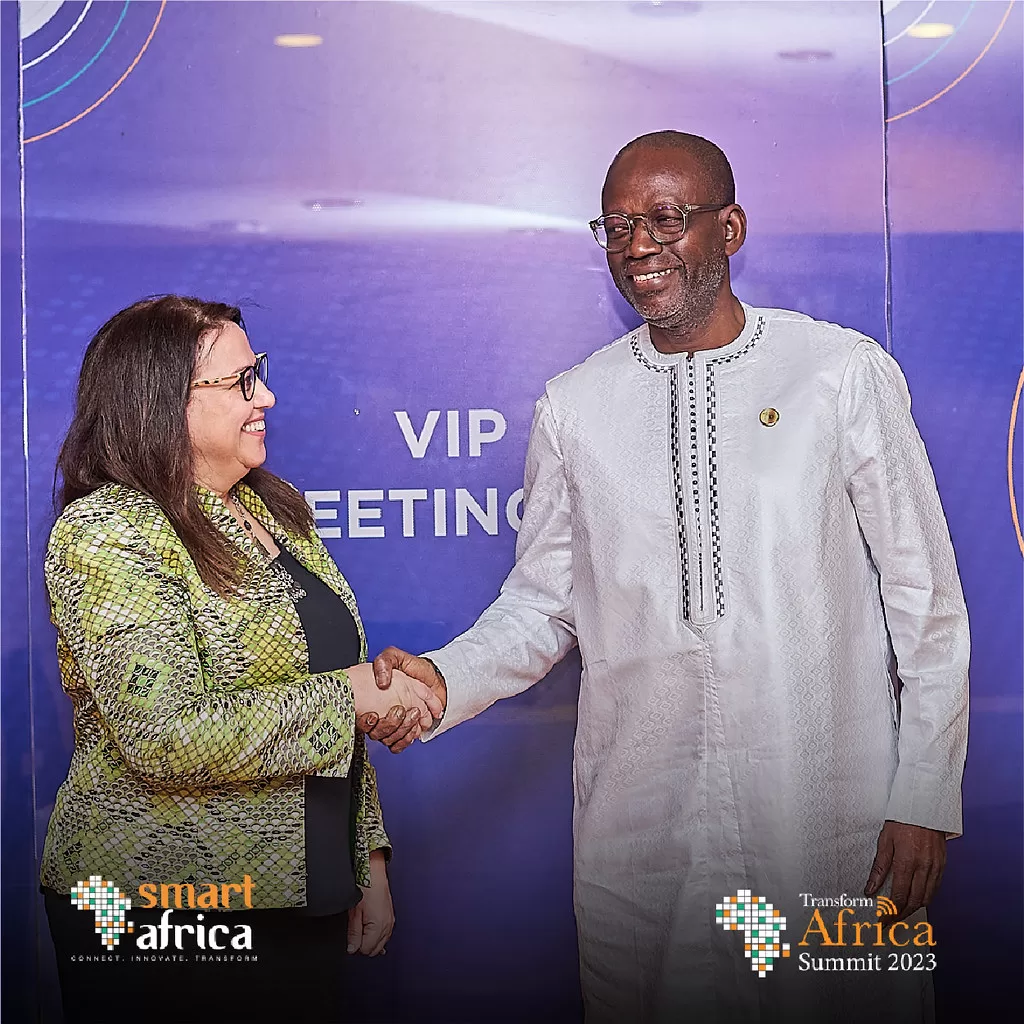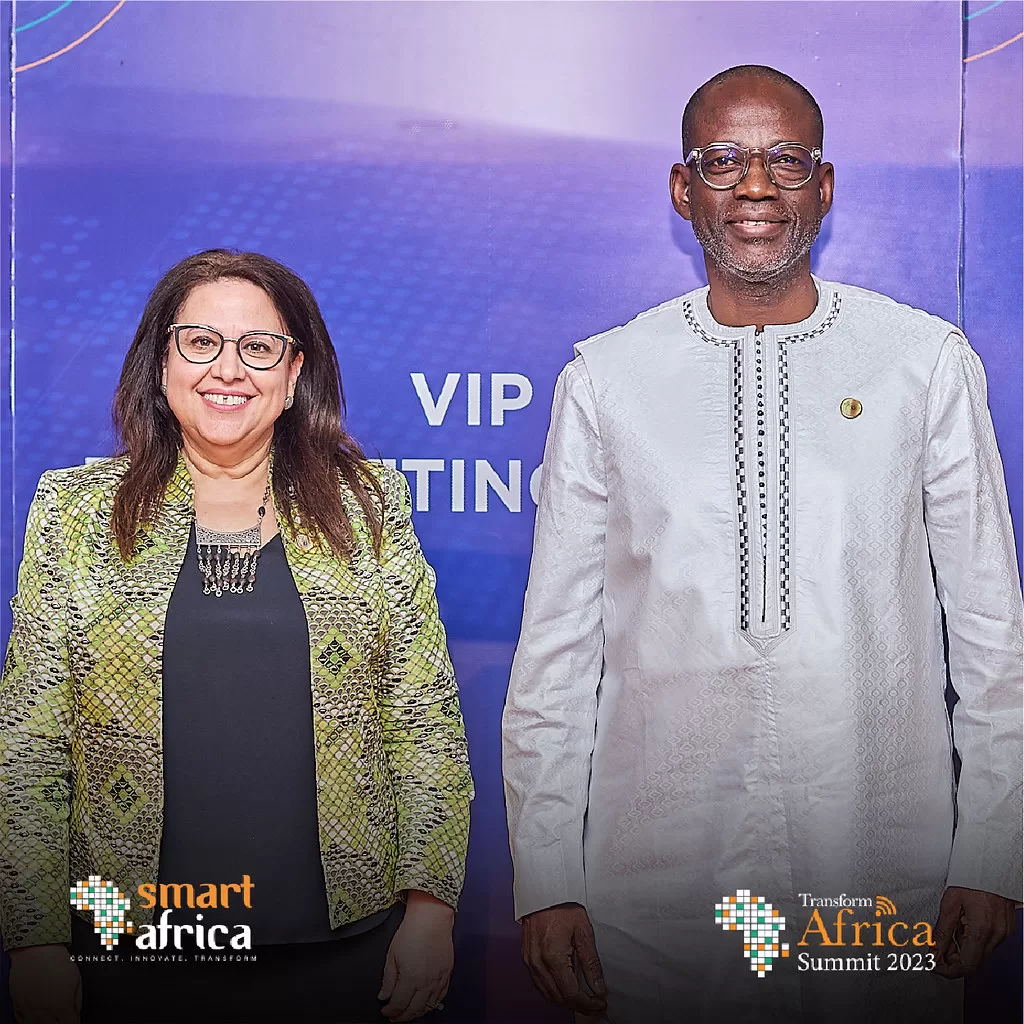Smart Africa’s Digital Academy receives a $20mn grant from the World Bank to expand across Africa
SADA aims to bridge the digital skills gap in African countries, improving employability and meeting the emerging talent needs of African citizens
KIGALI, Rwanda, February 28, 2024/ — The World Bank is partnering with Smart Africa (www.SmartAfrica.org), to scale up the Smart Africa Digital Academy (SADA) initiative from a national to a regional focus as part of the Western Africa Regional Digital Integration Program (WARDIP), in a bid to advance regional integration of digital markets through a USD 20 million grant for 5 years.

This scale up will leverage on the existing SADA implementation and AReg4DT program to establish a new generation of policymakers and regulators across Africa, who are individually knowledgeable on how to harness the potential of green and inclusive digital transformation through new approaches to policy and regulation, and who collectively contribute to the establishment of a Single Digital Market in Africa.
With this aim, the scale-up will reach 30,000 unique policymakers and decision makers from all countries in Africa, with a targeted participation level of females at 40%.
Given the World Bank’s commitment to digital transformation in Africa, the grant will significantly contribute to regional integration and rapid adoption of the Single Digital Market for Africa.

Launched by the Smart Africa Alliance from a seed money of about thirty thousand US dollars which saw the first implementation of an online training for policy and decision makers in August 2020, the Smart Africa Digital Academy (SADA) has made significant strides in advancing digital skills and fostering a dynamic learning ecosystem across Africa with initial grant support from Norwegian Agency for Development Cooperation (NORAD), the German Federal Ministry for Corporation and Development and Deutsche Gesellschaft für Internationale Zusammenarbeit (GIZ) GmbH (BMZ /GIZ).
SADA aims to bridge the digital skills gap in African countries, improving employability and meeting the emerging talent needs of African citizens. Since its inception, SADA has trained over 7000 beneficiaries across 35 countries in Africa on various digital transformation topics.
Commenting on the partnership with the World Bank, the CEO of Smart Africa, Mr. Lacina Koné highlighted “At the heart of the digital transformation lies the need to bridge the digital skills gap of our continent’s future and present workforce. Today, I am pleased to announce that SADA, our capacity building vehicle, is geared to reach a new milestone thanks to our key development partner, The World Bank”.
“DTfA/ WARDIP is a crucial step toward an interconnected, innovative, and inclusive future for West Africa. Beyond shaping a digital landscape, it aims to foster regional integration through collaboration and strategic investments”, said Boutheina Guermazi, World Bank Director for Regional Integration for Africa and the Middle East. “It will break down barriers, cultivate a dynamic digital ecosystem, and empower local communities and businesses to thrive in the digital age”.
As the implementation progresses, SADA will focus on competency-based skills training that allows a pipeline of talents to be created for the job market in Africa and beyond. Additionally, the COVID-19 pandemic, advocated the need to mainstream ICT and digital into Africa’s educational system, and this will be achieved through the training portfolio for teachers and children, which focuses on Science Technology Engineering Arts and Mathematics.
SADA acknowledges the need for a tiered approach to digital skilling in Africa and has five main target groups with a multifaceted approach of interventions to these target groups, namely: Policy and Decision Makers, Youth and Entrepreneurs, Teachers and Students, Digital Experts and the General public. It federates existing initiatives and leverages on the convening power of the Smart Africa Alliance to implement solutions that are co-created with the countries and in collaboration with prominent international and private sector organizations, including the World Bank, ITU, BMZ, GIZ, IEEE, GSMA, USTTI and major tech companies.
Distributed by APO Group on behalf of Smart Africa.
For more information, contact:
Smart Africa
Yvan Guéhi
Head of Brand and Communications
E-mail: [email protected]
Follow us on:
Twitter: https://apo-opa.co/48f0U2x
Facebook: https://apo-opa.co/3NL7Dcu
Linkedin: https://apo-opa.co/3vgHY50
Website: www.SmartAfrica.org
About the World Bank IDA:
The International Development Association (IDA) is the World Bank’s fund for the poorest. Established in 1960, it provides grants and low to zero-interest loans for projects and programs that boost economic growth, reduce poverty, and improve poor people’s lives. IDA is one of the largest sources of assistance for the world’s 76 poorest countries, 39 of which are in Africa. IDA resources help effect positive change in the lives of the 1.6 billion people living in the countries that are eligible for its assistance. Since its inception, IDA has supported development work in 113 countries. Annual commitments are constantly on the rise and have averaged $21 billion over the past three years, with about 61% going to Africa.
About Smart Africa:
Smart Africa is an alliance of 39 African countries, international organisations and global private sector players tasked with Africa’s digital agenda. The alliance is empowered by a bold and innovative commitment by African Heads of State to accelerate sustainable socio-economic development on the continent and usher Africa into the knowledge economy through affordable access to broadband and the use of ICTs. With a vision to create a single digital market in Africa by 2030, the Smart Africa Alliance brings together Heads of State who seek to accelerate the digitalization of the continent and create a common market. Launched in 2013 by seven (7) African Heads of State, the Alliance now has 39 member countries, representing over 1 billion people and over 50 Private Sector members committed to the vision and the advancement of Africa. (Partners of the Smart Africa Alliance include the African Union, the ITU, World Bank, the African Development Bank, the United Nations Economic Commission of Africa, the GSMA, ICANN and Companies).





























